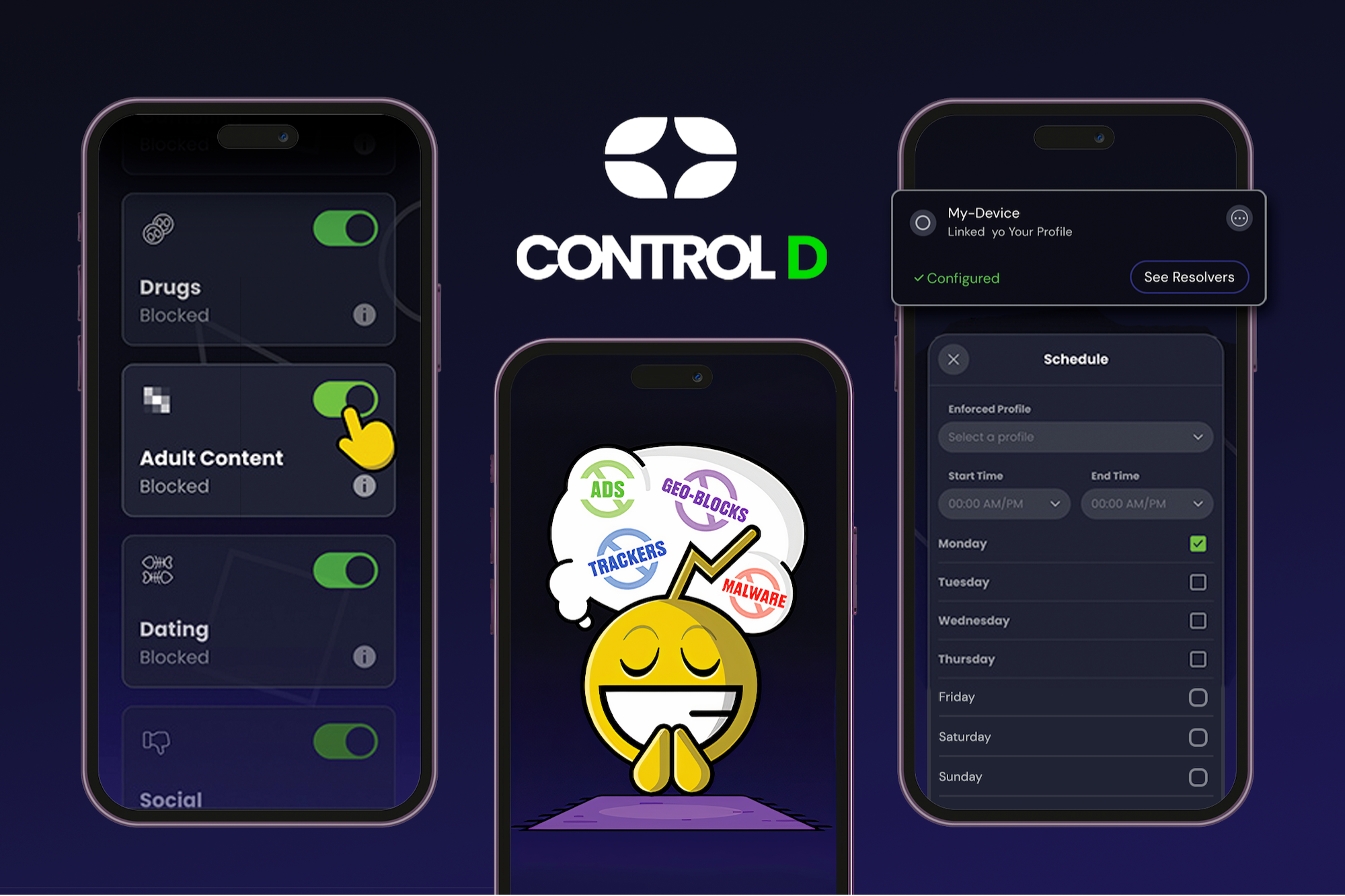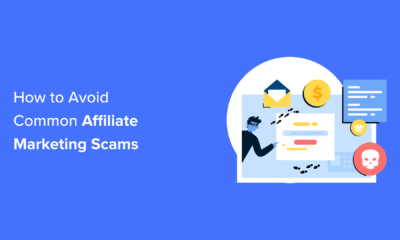AFFILIATE MARKETING
How One Industry Made Me a Millionaire

Opinions expressed by Entrepreneur contributors are their own.
There’s a tiny island in the middle of the Mediterranean Sea where many young entrepreneurs go to make millions. These young millionaires often have similar characteristics like being risk-takers, hustlers and innovators, but they also share something else: They’re casino affiliates.
The online casino and gambling industry is one of the fastest-growing sectors in the world, and many of the most successful affiliates in this industry (myself included) made their name on the tiny island of Malta.
This country of fewer than 500,000 people has taken on the role of “Las Vegas” for the online casino industry and it’s the headquarters of huge gaming companies and affiliates. While you don’t need to live in Malta to be an online casino mogul, most of the great ones do.
I spent 10 years of my life in Malta, and built one of the largest gaming affiliates in the world, Catena Media, while earning more than $50 million before turning 30.
So, what’s so interesting about being a gambling affiliate?
The appeal of being an online affiliate
Many entrepreneurs are drawn to the affiliate industry because of its low barriers to entry. Every business has hurdles to overcome before you can launch, and some of those hurdles are shorter or taller than others.
No matter how much you like space or understand rockets, you’re not going to easily compete with Elon Musk and SpaceX. The barriers to entry into that industry are huge. Not only would you need hundreds of millions of dollars, but you’d need licensing, expertise and other non-financial assets that are difficult to acquire.
However, the hurdles to becoming an online affiliate are relatively small. You simply need to sign-up as an affiliate for a company, purchase a domain and hosting service, create a website and begin posting content with affiliate links. Most savvy entrepreneurs could create and launch an online affiliate site in one day for under $20.
What’s appealing about the online casino space?
The online casino and the entire online gambling industry in the United States is one of the more promising sectors at the moment. In fact, the U.S. online gambling industry was valued at $1.978 billion in 2020 and has an estimated compound annual growth rate (CAGR) of 17.3% over the next 5 years.
As more states begin to legalize online gambling and sports betting, you can expect to see this sector grow exponentially. This opportunity is what makes the online casino and gambling industry so appealing to young entrepreneurs.
What type of skills do you need?
When I launched my first online casino affiliate website, my partner and I had to build the website from scratch — which required some level of web development competency. However, today’s landscape is much different and anyone can launch a clean, optimized affiliate website with little to no knowledge of coding or web design.
Platforms like WordPress, Wix and Squarespace are built around making it simple for anyone to create a professional-looking website, and their tools help you do just that.
While you don’t need a complex website to make money, you will want to create an optimized website — which is what really separates you from other casino affiliates.
Getting started with website optimization
While many industries are built around pay-to-play marketing tactics like Google Ads, Facebook Ads and other paid advertising, the online gambling industry is very much built around organic search — specifically, on Google.
For example, if someone lived in a state with legal online gambling like New Jersey and decided they wanted to gamble from home, they might search for “best online casino in New Jersey”, which would display a list of web pages related to that search.
As an affiliate, your goal is to be the top result for a given search term, which typically has a 31.7% click-through rate. The higher up your result on the page, the more traffic your website gets, and the more traffic your website gets, the more affiliate revenue.
Fortunately, there are several easy tips to practice good search engine optimization on your casino affiliate site.
Write quality content, often
In the world of SEO, content is king. But, more important than just creating good content is posting content regularly. Google is yearning for compelling, relevant content because its entire model is built around displaying searchers with the best result for their queries.
If you can consistently deliver better quality content than your competition as it relates to casino reviews, gambling news or sports betting insights, Google will eventually realize this and display your content higher in its results.
Zig while others zag
A lot of online casino affiliates go after the same main search terms. While these might be some of the most searched, they are often the most competitive, which makes it hard for new casino affiliates to rank highly.
Fortunately, there are millions of terms people search and you don’t have to always compete for the hardest search terms. If you want, you can optimize your website for more specific searches like branded and long-tail keywords.
While the market for secondary or long-tail search terms might be smaller, they are less competitive. This gives you a better chance of earning the top result.
Don’t neglect technical SEO
Creating ideas and content are great ways to improve your SEO, but there are other technical areas of your site that must also be optimized if you want the best chance for success. From your page load speed to mobile optimization, don’t neglect to build a technically sound website.
Related: 8 Things I Wish I’d Known Before Starting Affiliate Marketing
Know your target audience
The goal of any online affiliate is to attract specific people to your website so that they can click your affiliate links. Therefore, casino affiliates should understand their target market intimately to deliver the best results.
In most cases, casino players land on an affiliate site for a few main reasons.
-
They are looking for the best casino: Since “best” is subjective, a good affiliate will provide rankings of online casinos based on different measurements like promotions, game library, customer service and reliability.
-
They are looking for the best bonuses: Online casinos use bonuses to attract new players or entice more gambling on their platform. Players might visit an affiliate because they want to quickly and easily see active casino promotions.
-
They are looking for entertainment or information: Someone might land on a casino affiliate website if they are looking for more information or because they are interested in a specific topic. For example, if someone wants to learn how to play slots, they might visit an affiliate’s resource on playing slots.
Not only should casino affiliates better understand their target audience, but they should also coordinate their site so that players who visit for different reasons can quickly and easily navigate to the information they want.
Related: This Is Why Teenagers Are the Affiliate-Marketing Experts
How do casino affiliates make money?
Making money as an online casino affiliate is pretty straightforward. In fact, most online casinos have a seamless process for becoming an affiliate that can be done in a single day.
The process is basically:
-
Create a website or digital asset (social media page could suffice)
-
Apply for an online casino affiliate program from the casino’s website
-
Get accepted into the program and receive a tracking link
-
Use this tracking link on your site or social asset
-
Someone clicks your link and signs up at that casino
-
They make a deposit and begin playing
-
You receive a commission based on the agreement
The process is structured so that affiliates only earn money when they are successful at sending active players to the casino. This relationship benefits both parties and is low-risk for everyone. The casino gets more players and the affiliate earns money by sending players to that casino. The affiliate can work as hard as they would like and the casino only pays when results are positive.
How do casino affiliates get paid?
Casino affiliate software will ask you to input your bank account information for direct deposit payments or they may send you a check in the mail. These commission payments are based on how the affiliate deal is structured between you and the casino.
Generally speaking, there are two main payment structures:
- Revenue Share: You earn a percentage of your registered players’ losings.
- Cost-Per-Acquisition (CPA): You earn a set price per depositing player.
Should you become an online casino affiliate?
The online gambling industry is one of the fastest-growing and most lucrative sectors today. In the coming years, more and more states will legalize online gambling and new casinos and technologies will enter the space. It’s not hard to see why so many entrepreneurs are considering becoming online casino affiliates.
There’s definitely money to be made in this industry, but it doesn’t mean it’s easy. However, if you can stay focused and commit yourself to delivering quality to your visitors, you might be the next young millionaire looking at condos in Malta.
Source link
AFFILIATE MARKETING
Franchising Is Not For Everyone. Explore These Lucrative Alternatives to Expand Your Business.

Opinions expressed by Entrepreneur contributors are their own.
Not every business can be franchised, nor should it. As the founder and operator of an exciting, new concept, it’s hard not to envision opening a unit on every corner and becoming the next franchise millionaire. It’s a common dream. At one time, numerous concepts were claiming to be the next “McDonald’s” of their industry.
And while franchising can be the right growth vehicle for someone with an established brand and proven concept that’s ripe for growth, there are other options available for business owners who want to expand their concept into prime locations before their competition does but who don’t want to go it alone for a number of reasons. For instance, they may not have the resources or cash reserves to finance a franchise program (it is important to note that while franchising a business does leverage the time and capital of others to open additional units, establishing a franchise system is certainly not a no-cost endeavor). Or they don’t want the responsibilities and relationship of being a franchisor and would rather concentrate on running their core business, not a franchise system.
Related: The Pros and Cons of Franchising Your Business
But when you have eager customers asking to open a branded location just like yours in their neighborhood, it’s hard to resist. You might think: What if I don’t jump on the deal, and I miss out on an opportunity that might not come around again?
Licensing your intellectual property, such as your name, trademarks and trade dress, in exchange for a set fee or percentage of sales is one way to accomplish this without having to go the somewhat more laborious and legally controlled franchise route. Types of licensing agreements range from granting a license to allow another entity to manufacture or make your products to allowing someone to use your logo and name for their own business. Unlike in a franchise, your partner in a licensing situation will only be allowed certain predetermined rights to sell your products and services, not an all-in agreement to give them a turnkey business, accompanied by training and support, in exchange for set fees. A licensing agreement spells out each party’s rights, responsibilities, and what they can and cannot do under the terms of the agreement. Having a lawyer draw up the paperwork is vital, as well as consulting with a trusted business advisor who has helped others along this path and can shorten your learning curve while protecting your rights. License agreements are governed by contract law as opposed to franchise laws. However, care must be taken: To ensure that you’re staying in your lane and not crossing over into franchisor territory, you’ll want your advisers to detail what you can and can’t do as a licensor.
For instance, a license agreement excludes you from being involved in the day-to-day operations of the licensee’s business. While having no oversight may sound like a relief, it can be a double-edged sword, especially for people who are used to controlling all aspects of their products or services. You won’t have to provide licensees with ongoing services, such as marketing materials and continuous training, but it also means you have no control over how they run their business, their product mix or even how they decorate their space. If you’re a type-A, this may be hard for you.
Most people are more familiar with trademark licensing with a third party because these agreements are big in the sports and entertainment industries, where a celebrity lends their name to endorse a product, whether it’s branded athletic wear or trendy foodservice menu items such as pizza, chicken, or even gelato.
Using a celebrity’s cache garners media attention you might otherwise never get. But not everyone who comes up with a great concept or product has the recognition that would allow them to attract famous business partners or endorsements, and rabid fans that follow.
There are other methods of getting your products in front of more consumers. Some coffee concepts, including Caribou for example, have created market saturation by both franchising traditional stores and granting licenses for nontraditional locations, such as airports, big-box stores, and college campuses. Others, on the other hand, like Starbucks, employ a combination of company-owned stores and licensees in high-traffic locations where a small kiosk can service a high-density population of shoppers. And, of course, bags and pods of these brands’ coffee blends are also sold in retail locations such as grocery stores.
Related: Startups Must Protect Their Trademark. Here’s How and Why
But again, here’s that cautionary note: If you go the licensing route for your products or services, be careful not to cross over into trying to direct the way that licensees do their business, from selecting locations to training employees.
While licensing or franchising may be valid business growth vehicles for many brands, additional business structures that can be considered include:
- Company-owned stores: Opening corporate locations using bank loans and/or the profits from already opened units.
- Dealerships or distributorships: In a distributor relationship, products are purchased from a manufacturer and then sold through local dealers.
- Agency relationships: These are similar to the relationships you’d have with dealers, but in this case, an agent or representative of your company sells your services to a third party. The important distinction to remember so that the relationship doesn’t cross over into franchise territory is that you, as the provider of the services, pay the agent (as an independent sales rep) rather than the agent collecting the money and paying you.
- Joint ventures: In this case, you, as the concept owner, would take on an operating partner who also invests his own funds in the business. The two of you would then share in the equity and profits at the percentage rate of your investment.
The appropriate method to grow your business depends on several factors, including your type of concept, service, or products; your risk aversion factor; your access to capital; where you’re located; and current market conditions. So, if you choose another option to franchising, be cognizant of not slipping into becoming a franchise. The Federal Trade Commission’s regulations define a franchise as meeting at least three standards: a shared name, fees and royalty payments paid to the company by the franchisee, and ongoing support and control of the day-to-day operations by the franchisor.
Keep in mind that if you start with one expansion method, you can consider changing that structure with legal and professional guidance should your business needs merit a shift in strategy. Case in point: some licensors will eventually convert licensees to franchises under a newly crafted agreement and program if they see the need to change the fee structure and maintain additional control over operations.
Slow growth can be detrimental to a business, but not picking the right vehicle for that growth can be worse than standing still. That’s why doing your homework — consulting with professionals, such as attorneys, accounting and franchising advisors, and talking to others in the same boat as you will save you from drifting too far from shore.
AFFILIATE MARKETING
How to Control the Way People Think About You
Opinions expressed by Entrepreneur contributors are their own.
In today’s digital age, where personal branding and public perception play a vital role in success, strategic PR efforts have become more important than ever. Ulyses Osuna, the founder of Influencer Press, joined our show to share valuable insights on the significance of PR, the evolving landscape, and the keys to achieving business growth while maintaining a fulfilling personal life.
One of the key takeaways from the conversation was the importance of strategic PR efforts in building a personal brand and shaping public perception. Ulyses emphasized that PR is not just about getting media coverage; it’s about controlling the narrative and shaping how others perceive you. By strategically positioning yourself and your brand through effective PR, you can influence public opinion and establish yourself as an authority in your field. Another crucial aspect discussed was the power of leveraging relationships and connections.
Ulyses highlighted the “Buglight Concept,” which involves utilizing the support and connections of others to achieve success. By building strong relationships and leveraging the networks of influential individuals, you can significantly expand your reach and influence. Ulyses’s own success with Influencer Press is a testament to the power of connections in the PR world. While professional success is undoubtedly important, Ulyses also stressed the significance of balancing personal time and fulfillment. In the pursuit of business growth, it’s easy to neglect personal well-being and relationships. However, Ulyses emphasized that true success lies in finding a balance between professional achievements and personal happiness.
By prioritizing personal time and fulfillment, entrepreneurs can sustain long-term growth and avoid burnout. In the ever-evolving landscape of PR, Ulyses highlighted the need for a clear mission when seeking press coverage. He emphasized the importance of aligning your brand with a cause or purpose that resonates with your target audience. By having a clear mission and purpose, you can attract media attention that aligns with your values and goals, ultimately enhancing your brand’s reputation and reach. Additionally, Ulyses discussed the importance of pricing services correctly and finding the right balance between personal involvement and business scalability.
The conversation also touched upon the dynamics of client relationships and the impact of showcasing external support. Ulyses emphasized the value of building strong relationships with clients and going above and beyond to exceed their expectations. Furthermore, he highlighted the importance of showcasing external support, such as media coverage or endorsements, to establish credibility and attract new clients. Ulyses’s own podcast, The Blacklist, where he shares insights and interviews successful entrepreneurs, was also discussed. He explained that launching the podcast was a way to give back to the entrepreneurial community and share valuable knowledge.
By continuously learning from others and implementing breakthrough ideas, Ulyses emphasized the importance of immediate action and continuous improvement for business growth. In conclusion, strategic PR efforts are essential for building a strong personal brand and controlling the narrative in today’s digital age. By leveraging relationships, finding a balance between personal and professional life, and having a clear mission, entrepreneurs can shape public perception, expand their reach, and achieve long-term success. Ulyses Osuna’s insights serve as a valuable guide for those looking to navigate the ever-changing landscape of PR and personal branding.
About The Jeff Fenster Show
Serial entrepreneur Jeff Fenster embarks on an extraordinary journey every week, delving into the stories of exceptional individuals who have defied the norms and blazed their own trails to achieve extraordinary success.
Subscribe to The Jeff Fenster Show: Entrepreneur | Apple | Spotify | Google | Pandora
AFFILIATE MARKETING
Set Your Team up for Success and Let Them Browse the Internet Faster

Disclosure: Our goal is to feature products and services that we think you’ll find interesting and useful. If you purchase them, Entrepreneur may get a small share of the revenue from the sale from our commerce partners.
According to TeamStage, 31 percent of employees waste about a half hour each day, and the top 10 percent of them can waste as much as three hours in a day. Part of that might be attitude, but the other part might be hangups caused by internet speed and advertisements. To nip that lost time in the bud, consider equipping yourself or your team with a tool to help stay on task.
From April 15 through 21, this five-year subscription to Control D Some Control Plan is on sale for just $34.97 (reg. $120). This is the best price for this deal online. This tool is designed to help users browse and use the internet faster while also blocking ads.
Control D is described as a “one-touch solution” for taking control over the productivity of your computer and internet usage. The deal supports use for up to ten devices, and it empowers each user to block advertisements, enjoy faster browsing, and set internet safety rules and restrictions for kids.
Control D’s bandwidth is substantial. It can accommodate up to 10,000 custom rules, block more than 300 servers, support multiple profiles, and unlimited usage. This robust and well-designed tool is a reliable option for any business leader who wants to liberate themselves or team members from distractions online.
Control D is rated a perfect 5/5 stars on Product Hunt.
Remember that from April 15 through 21, this 5-year subscription to Control D Some Control Plan is on sale for just $34.97 (reg. $120)—the best price on the web.
StackSocial prices subject to change.
-

 PPC7 days ago
PPC7 days ago19 Best SEO Tools in 2024 (For Every Use Case)
-
SEARCHENGINES6 days ago
Daily Search Forum Recap: April 19, 2024
-
SEARCHENGINES7 days ago
Daily Search Forum Recap: April 18, 2024
-

 WORDPRESS6 days ago
WORDPRESS6 days agoHow to Make $5000 of Passive Income Every Month in WordPress
-

 SEO6 days ago
SEO6 days ago25 WordPress Alternatives Best For SEO
-

 WORDPRESS5 days ago
WORDPRESS5 days ago13 Best HubSpot Alternatives for 2024 (Free + Paid)
-

 WORDPRESS6 days ago
WORDPRESS6 days ago7 Best WooCommerce Points and Rewards Plugins (Free & Paid)
-

 MARKETING6 days ago
MARKETING6 days agoBattling for Attention in the 2024 Election Year Media Frenzy
















You must be logged in to post a comment Login